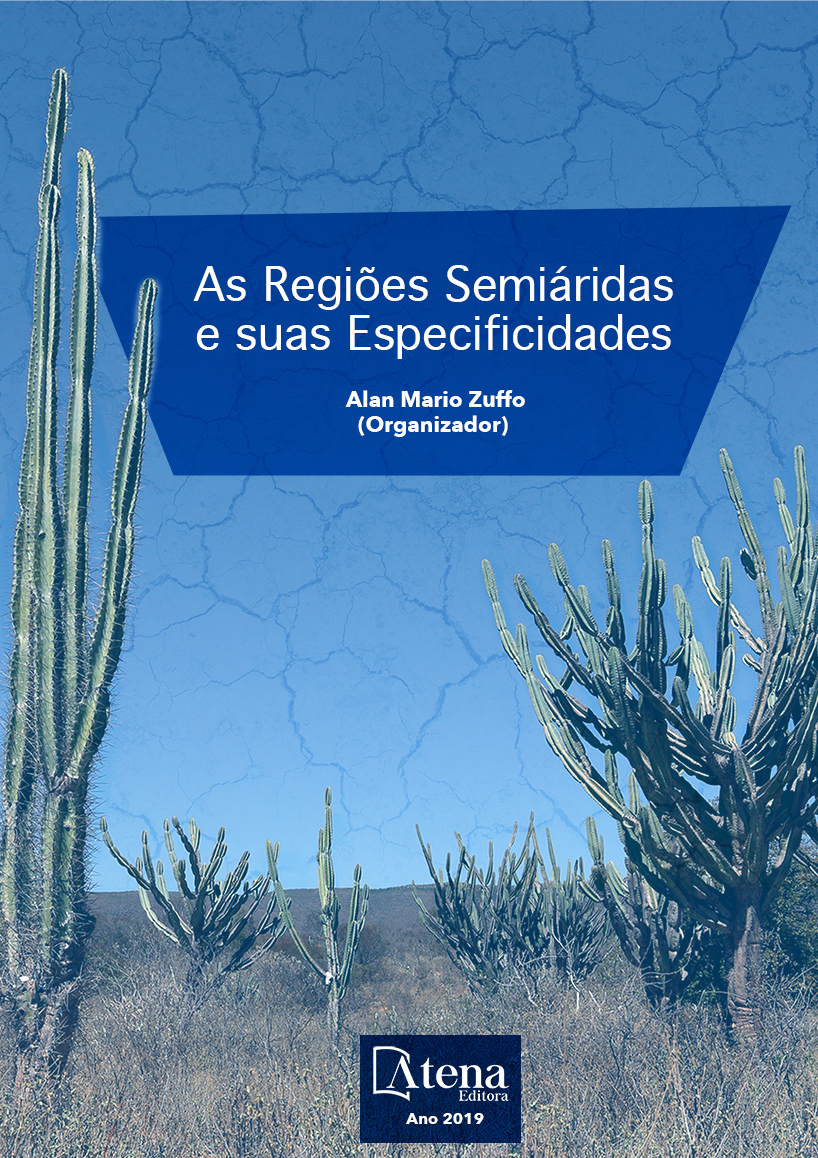
PRODUÇÃO DE PELLETS DE CAPIM-ELEFANTE (Pennisetum purpureum Schum) SOB DIFERENTES TRATAMENTOS
O capim-elefante (Pennisetum
purpureum Schum) apresenta-se como fonte de
diversificação da matriz energética no semiárido
brasileiro pela sua alta produtividade em um
curto ciclo de desenvolvimento. Nesse sentido,
uma alternativa eficaz que viabiliza a utilização
energética desta gramínea é a pelletização,
processo que permite a obtenção de produtos
com densidades superiores às dos resíduos de
origem, conferindo maior qualidade energética
ao produto final. Objetivou-se produzir e avaliar
a qualidade de pellets a partir dos resíduos
de capim-elefante sob diferentes tratamentos.
Caracterizou-se os resíduos a partir da
determinação da umidade, análise química
imediata e estrutural, poder calorífico superior,
poder calorífico útil e densidade a granel. Para
produção de pellets foram estabelecidos três
tratamentos, sendo estes: T1 - 100% capim;
T2 - capim sob adição de amido de trigo e T3
- capim sob adição de vapor. A caracterização
dos pellets deu-se por meio das análises do
poder calorífico superior e poder calorífico útil,
dimensões, densidade a granel, durabilidade, porcentagens de finos, dureza, umidade
de equilíbrio higroscópico e densidade energética. Procedeu-se à análise de variância
pelo teste F, sendo as médias comparadas pelo teste Tukey, com auxílio do software
R. O tratamento T2 (capim + amido de milho) apresentou valores interessantes como
baixos teores de cinzas e finos, alta durabilidade mecânica e dureza, conferindo a esse
tratamento a melhor avaliação para produção de pellets. Conclui-se que os produtos
obtidos foram homogêneos e de fácil manuseio, sendo, portanto, alternativa viável de
fonte de renda para a população do semiárido.
PRODUÇÃO DE PELLETS DE CAPIM-ELEFANTE (Pennisetum purpureum Schum) SOB DIFERENTES TRATAMENTOS
-
DOI: 10.22533/at.ed.92319150317
-
Palavras-chave: Biomassa, pelletização, potencial energético.
-
Keywords: Biomass, pelletization, energy potential.
-
Abstract:
Elephant grass (Pennisetum purpureum Schum) is a source of
diversification of the energy matrix in the Brazilian semi-arid region due to its high
productivity in a short development cycle. In this sense, an effective alternative that
makes possible an energetic application of this grass is pelletization, a process
that allows to obtain a greater quantity of products with density of origin residues,
giving a higher quality to the final product. The aim of this work was to produce and
evaluate the quality of pellets from elephantgrass residues under different treatments.
Residues were characterized from moisture determination, immediate and structural
chemical analysis, higher calorific value, useful calorific value and bulk density. For
pellet production, three treatments were established: T1 - 100% grass; T2 - grass with
addition of wheat starch and T3 - grass with addition of steam. The characterization
of the pellets was carried out by means of the analyzes of the superior calorific value
and useful calorific value, dimensions, bulk density, durability, percentages of fines,
hardness, hygroscopic equilibrium moisture and energy density. The variance analysis
was performed by the F test, and the means were compared by the Tukey test using
software R. The treatment T2 (grass + corn starch) presented interesting values as low
ash and fine contents, high mechanical durability and hardness, giving this treatment
the best evaluation for pellet production. It is concluded that the products obtained
were homogeneous and easy to handle, being, therefore, a viable alternative source of
income for the population of the semiarid. -
Número de páginas: 15
- ROSIMEIRE CAVALCANTE DOS SANTOS
- IZABELLE RODRIGUES FERREIRA GOMES
- CYNTHIA PATRICIA DE SOUSA SANTOS
- ANA CAROLINA DE CARVALHO
- DAMIÃO FERREIRA DA SILVA NETO
- RENATO VINICIUS OLIVEIRA CASTRO
- ANGÉLICA DE CÁSSIA OLIVEIRA CARNEIRO
- Sarah Esther de Lima Costa


